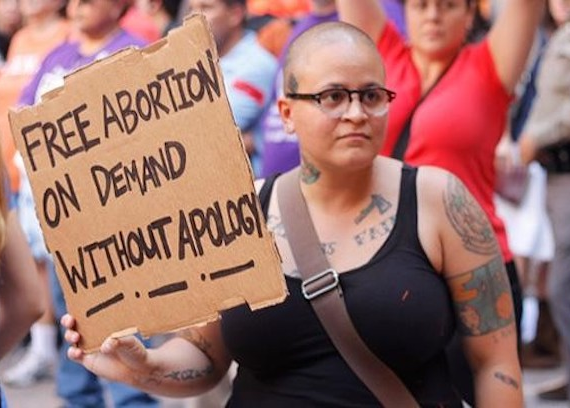The Kansas state legislature is considering a proposal to expand its state Medicaid program, although its previous efforts to achieve this policy goal have not met with success. In 2017, then-governor Sam Brownback vetoed a bill to expand Medicaid, saying that the cost was “irresponsible and unsustainable” when the state was dealing with a budget crisis.
Current Kansas governor Laura Kelly, however, made Medicaid expansion a key issue during her 2018 campaign, and her proposal has received support from several Republicans in the legislature.
Incentivized by the Affordable Care Act, 36 other states have expanded their Medicaid programs since 2012. In these states, much of the debate focused on the projected cost to taxpayers and the ways in which expanded Medicaid coverage might affect the quality of health-care coverage for individuals already on Medicaid.
In Kansas, though, pro-life advocates have another important reason to oppose Medicaid expansion: It would place thousands of Kansas women on a Medicaid program that is likely to begin covering elective abortions.
The situation in Kansas is unique. The Hyde Amendment currently limits the ability of federal taxpayer dollars to directly fund elective abortions through Medicaid, although states are free to do so through their own Medicaid programs. Currently, 16 states use their own taxpayer funds to fund elective abortions through state Medicaid programs. While Kansas is not one of these states, a recent ruling means there is now a good chance that courts will begin requiring the state Medicaid program to cover elective abortions in the future.
In last year’s Hodes & Nauser, MDs, P.A. v. Schmidt, the Kansas Supreme Court ruled that there is an independent right to abortion in the state constitution. Declaring abortion to be a “fundamental right,” the court adopted the strict-scrutiny test as the standard of judicial review for all laws involving abortion. With only one exception, every state court that has both recognized an independent state constitutional right to abortion and adopted the strict-scrutiny standard has later struck down limits on public funding of abortion when those limits have been challenged.
Click Like if you are pro-life to like the LifeNews Facebook page!
Limits on publicly funded abortion through state Medicaid programs have been struck down by the state supreme courts of Alaska, California, Massachusetts, Minnesota, and New Jersey. Trial courts in Montana and Connecticut also have struck down limits on taxpayer funding for abortion. Overall, nine state Medicaid programs now cover elective abortions as the result of judicial rulings. Given these precedents, it is a virtual certainty that the current limits on publicly funded abortion in Kansas would be struck down if challenged on the basis of the opinion in Hodes.
Furthermore, if more women were in a Medicaid program that covers elective abortion, it likely would increase the number of abortions funded by taxpayers. The experience of Alaska is instructive. In 2015, Governor Bill Walker signed legislation that expanded Alaska’s Medicaid program, which at the time covered elective abortions. Since then, the number of abortions paid for by the state Medicaid program has increased by an average of more than 100 per year, and the proportion of abortions in Alaska funded by taxpayers increased by 13 percent.
In addition, if Kansas expands its Medicaid program, many women are likely to leave exchange-based health-insurance programs that do not cover abortion to join the state program. Currently, pregnant women in Kansas are eligible for Medicaid, which provides expectant mothers an incentive to carry their child to term. If low-income women become eligible for Medicaid regardless of whether they are pregnant, the incentive to carry pregnancies to term vanishes and the incidence of abortion is likely to increase. Finally, Medicaid expansion will increase the amount of taxpayer money going to the two Planned Parenthood facilities in Kansas.
Overall, the proposed Medicaid expansion is projected to place 33,000 Kansas women onto a state Medicaid program that will very likely cover elective abortion in the future. Kansas taxpayers concerned about protecting innocent human life have plenty of reasons to oppose this proposal.
LifeNews Note: Michael J. New is an Associate Professor of Economics at Ave Maria University and an Associate Scholar at the Charlotte Lozier Institute. He is a former political science professor at the University of Michigan–Dearborn and holds a Ph.D. from Stanford University. He is a fellow at Witherspoon Institute in Princeton, New Jersey.








